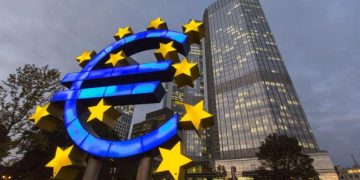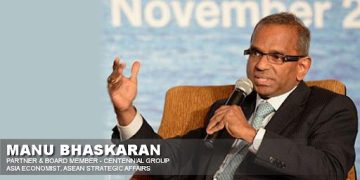Globalization, the process of increasing interconnectedness and interdependence among countries and economies, has been one of the defining features of the modern world. Over the past few decades, technological advances, trade liberalization, and multinational corporations have created a global network of economic, cultural, and political exchange. However, in recent years, there has been a notable rise in protectionism, nationalism, and geopolitical tensions, leading many to question whether globalization is in retreat.
The COVID-19 pandemic has further exposed vulnerabilities in global supply chains, while the trade wars between major economic powers and the rise of populist governments have fueled skepticism about the benefits of an interconnected world. These developments have prompted some to speculate that globalization is in decline. But is this truly the case, or are these signs merely a temporary setback in the ongoing process of global integration?
This article explores the factors contributing to the “backslide” of globalization, analyzes whether it is a temporary phenomenon or a long-term trend, and examines the implications for the global economy, politics, and society.
1. The Forces Driving the Backslide of Globalization
Several key factors are contributing to the perceived decline of globalization, ranging from economic challenges to political and social shifts. Below, we explore some of the most prominent forces at play.
1.1. Economic Protectionism and Trade Barriers
Over the past few years, protectionist policies have gained traction in several major economies. Leaders such as former U.S. President Donald Trump adopted “America First” policies, imposing tariffs on imports and withdrawing from international trade agreements like the Trans-Pacific Partnership (TPP) and the Paris Agreement on climate change. Other countries, including China, have also engaged in trade disputes, resulting in retaliatory tariffs and restrictions on foreign businesses.
The imposition of trade barriers and tariffs represents a shift away from the free trade principles that characterized much of globalization in the late 20th and early 21st centuries. The trade wars, particularly between the U.S. and China, have disrupted global supply chains, increased costs for businesses, and undermined the spirit of international cooperation that has driven globalization in the past. This growing trend of economic nationalism has led some to question whether protectionism will become the new norm.
1.2. Geopolitical Tensions and Nationalism
Nationalism has been on the rise in many parts of the world, fueled by a backlash against globalization’s perceived negative effects on local communities. Populist political movements have emerged in response to the perceived erosion of national sovereignty, as many voters feel that their countries have been left behind by the forces of globalization.
Brexit, the United Kingdom’s decision to leave the European Union, is perhaps the most prominent example of how nationalism can fuel the retreat from global integration. While the decision was driven by a complex mix of political, social, and economic factors, the desire to regain control over national borders and policies was a key motivator. Similarly, in countries like Hungary and Poland, leaders have championed “sovereignism” as a means to protect national identity and resist the perceived negative consequences of globalization, such as immigration and cultural homogenization.
The rise of authoritarian leaders in various regions of the world has also led to an increase in geopolitical tensions, as countries prioritize their own interests over global cooperation. This shift has raised concerns that the world may be heading toward a new era of fragmentation, where international collaboration and multilateralism take a back seat to national self-interest.
1.3. Supply Chain Disruptions and the Pandemic’s Impact
The COVID-19 pandemic revealed the fragility of global supply chains and underscored the risks of over-reliance on international trade and manufacturing. With countries in lockdown, factories closed, and borders closed, many industries faced severe shortages of raw materials and goods, leading to supply chain disruptions.
The pandemic has caused many companies and governments to rethink their dependence on global supply chains and has sparked a shift toward “reshoring” or “nearshoring” manufacturing. Countries have begun to prioritize domestic production and reduce their reliance on foreign suppliers, especially in critical sectors such as healthcare and technology. This reorientation could lead to a gradual decoupling of global trade and a more localized or regionalized economic structure.
1.4. Technological Disruption and Digitalization
While technology has been a key driver of globalization, it is also contributing to a potential backslide in some respects. The rapid rise of automation, artificial intelligence (AI), and digital technologies has shifted the way businesses operate, often reducing the need for labor-intensive manufacturing and lowering the cost of information and communication exchange. While these innovations have the potential to enhance global connectivity, they also raise questions about the future of work and the global labor market.
Moreover, the increasing role of digital platforms and e-commerce has created new barriers in terms of data privacy, cybersecurity, and digital sovereignty. The competition for technological dominance, particularly between China and the U.S., has raised concerns about fragmentation in the global digital economy. Data protection laws and regulations are becoming more complex, leading to a situation where companies must navigate different standards and rules depending on where they operate, which can undermine the seamless flow of information and commerce.
2. Is the Backslide of Globalization a Short-Term Phenomenon?
While there are certainly signs that globalization is experiencing a period of retrenchment, it is important to consider whether this is a temporary phenomenon or a longer-term trend. To answer this question, we need to examine whether the forces driving the backslide are short-lived or indicative of a more permanent shift in global dynamics.
2.1. The Resilience of Global Trade
Despite the rise of protectionism and the challenges posed by the pandemic, global trade has not disappeared. In fact, the value of international trade has continued to grow, albeit at a slower pace than before. The World Trade Organization (WTO) estimates that global trade volumes rebounded strongly in 2021, following a sharp contraction in 2020 due to the pandemic. Moreover, many countries have continued to pursue trade agreements, such as the Regional Comprehensive Economic Partnership (RCEP) in Asia and the European Union’s trade agreements with various countries.
Although there has been a shift towards regional trade blocs and some decoupling between major economies, the global trading system remains an integral part of the world economy. It is unlikely that countries will completely turn away from global trade, as the economic benefits of interconnectedness and access to global markets are too significant to ignore. The transition toward more localized or regional supply chains may be more of an adaptation to current challenges than a rejection of globalization itself.
2.2. The Growing Interdependence of Technology and Data
Technology and data continue to be major driving forces behind globalization. While countries may seek to regulate and control data within their borders, the digital economy still relies on the free flow of information, which is essential for innovation, collaboration, and economic growth. Global tech giants like Google, Amazon, and Alibaba operate across borders and connect consumers and businesses worldwide. The interconnected nature of the global digital economy makes it unlikely that digital globalization will disappear.
Additionally, the rapid advancement of AI, blockchain, and other digital technologies has the potential to further enhance global cooperation. For instance, AI-powered platforms can facilitate cross-border trade and communication, while blockchain offers secure and transparent ways to conduct international transactions. These technological advancements may even help overcome some of the challenges to globalization, such as supply chain disruptions and geopolitical tensions.
2.3. The Need for Global Solutions to Global Challenges
Global challenges, such as climate change, pandemics, and geopolitical instability, require international cooperation to address effectively. The global response to the COVID-19 pandemic demonstrated the importance of collaboration between countries, from vaccine development and distribution to economic recovery plans. Similarly, the fight against climate change necessitates global action, as greenhouse gases and environmental issues transcend national borders.
In this context, globalization may be evolving rather than retreating. While the political landscape may be shifting towards nationalism and protectionism, there is still a strong recognition that global problems require global solutions. The need for shared infrastructure, international agreements, and cross-border collaboration in tackling global challenges is likely to drive continued integration, even if this takes new forms.

3. The Future of Globalization: A More Regionalized World?
While the retreat of globalization may not be a permanent shift, the global landscape may look different in the coming decades. Instead of a fully integrated world, we may see the emergence of a more regionalized system, with countries and regions increasingly aligning with like-minded economic and political partners.
Regional trade agreements, such as the European Union, the North American Free Trade Agreement (NAFTA), and RCEP, may become more common as countries seek to minimize reliance on distant markets and suppliers. This could lead to a world where global trade is more fragmented, with stronger economic ties within regions rather than across continents.
Additionally, technological advancements in AI, automation, and digital currencies could make it easier for regions to become more self-sufficient while maintaining connections with the rest of the world. The future of globalization may therefore not involve a complete breakdown of international cooperation, but rather a restructuring of how countries and regions engage with each other.
4. Conclusion: The Backslide of Globalization – Temporary Setback or Permanent Shift?
The backslide of globalization is a complex and multifaceted phenomenon, driven by economic protectionism, political nationalism, technological disruption, and the challenges posed by global crises like the COVID-19 pandemic. While these forces have created significant hurdles for global integration, it is too early to conclude that globalization is in permanent decline.
Instead, we may be witnessing a temporary adjustment to the changing political and economic realities of the 21st century. Although there are signs of retreat, the underlying forces of globalization—such as the demand for technological innovation, the need for global solutions to common challenges, and the benefits of international trade—remain powerful drivers of global cooperation.
In the long term, we may see a shift towards a more regionalized world, where countries and regions form tighter economic and political ties. However, the need for global collaboration in addressing pressing issues like climate change, pandemics, and geopolitical instability will likely continue to foster interconnectedness, even as national interests shape the future of globalization. Therefore, while the current backslide may represent a temporary phase, the global economy’s future will likely involve a more nuanced, flexible approach to integration, blending national interests with global collaboration.



































